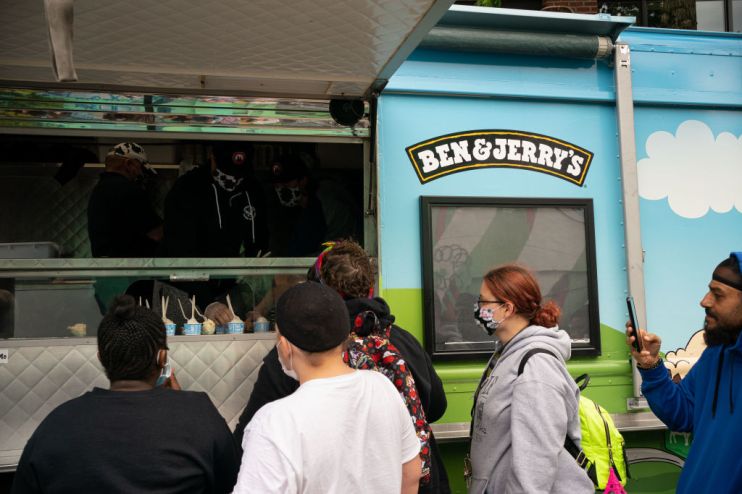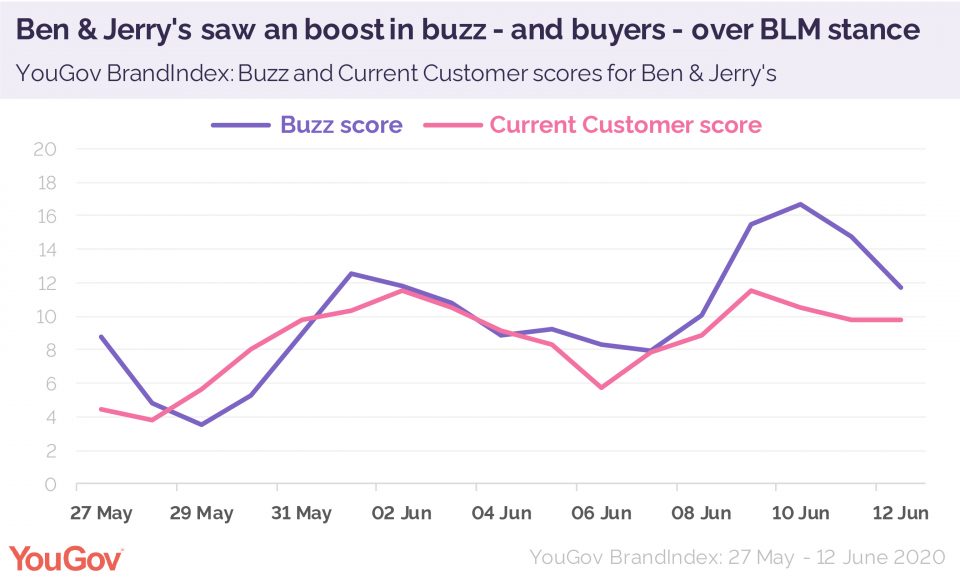Shakespeare: Ben & Jerry’s BLM stance wins plenty of friends

YouGov data reveals that more than half of Brits (56%) think brands should stay out of political issues. Only a fifth (19%) think it appropriate that they should take a stance.
It’s easy to see why the majority feel this way. Brands have gotten it wrong plenty of times – from the pulled Kendall Jenner ad that was accused of trivialising an important racial justice movement to one cosmetics retailer’s widely criticised“SpyCops” campaign – so it’s unsurprising that many have chosen to remain apolitical.
But businesses that take a side do sometimes see the benefits. Ben & Jerry’s efforts on behalf of Black Lives Matter, for example, are not a recent phenomenon. The brand has been vocal and emphatic in its support of the movement for years, and in the wake of the recent international protests, it has released a detailed and highly publicised statement – complete with four concrete political demands.
Read more: Inflation hits four-year low in new UK figures
Since it first responded to the death of George Floyd on May 27, UK BrandIndex data shows that buzz scores have almost doubled: rising from 8.8 to a peak of 16.7 (June 10).
Reputation has also steadily climbed since the company weighed in: increasing from a nadir of 17.8 (May 24) in the last few weeks to a high point of 33.4 (June 6). Impressions have climbed from a low of 30.0 to a high of 41.6 (June 1).

And there seems to be advantage for Ben & Jerry’s on the commercial side: in less than a week after the company condemned white supremacy, current customer scores – which measure whether members of the public have bought from a brand in the past 30 days – more than doubled, increasing from 4.4. to a peak of 11.5.
This doesn’t mean that all brands will benefit from such an intervention – there is always the risk of appearing crass and exploitative. But where a company has earned credibility through consistent engagement and can therefore communicate with authenticity, it may work well for a brand.